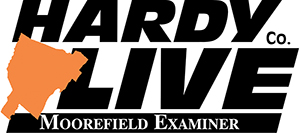White House’s Director of the Office on National Drug Control Policy finishes West Virginia meetings in Lewisburg
WV Press Staff Report
LEWISBURG, W.Va. – Dr. Rahul Gupta, White House director of the Office on National Drug Control Policy (ONDCP), concluded a two-day tour of the Mountain State Saturday with a visit to the West Virginia School of Osteopathic Medicine (WVSOM).
Explaining his Saturday visit to WVSOM, Gupta said, “The school is focused on real communities, real people, and how to solve problems.”
Gupta joined WVSOM President, Dr. James Nemitz – as well as several community leaders and recovery specialists – in a roundtable discussion regarding victories and setbacks in the ongoing battle against the opioid epidemic. Gupta also shared information on the National Drug Control Strategy.

“Dr. Gupta, we are so pleased that you are here with us today,” Nemitz said to begin the morning’s session. “We at WVSOM, and throughout our entire community, appreciate the incredible work you’re doing at the national level.”
Nemitz noted that Gupta’s work has had a significant impact, “especially here in rural America,” adding that it is, “in the Greenbrier Valley where the rubber meets the road.”
During his three-day trip through West Virginia, Dr. Gupta gathered information from several groups:
On Thursday, he joined a roundtable discussion at West Virginia University Medical School with West Virginia University President Gee and members of the faculty. Gupta also toured the West Virginia University Rockefeller Neuroscience Institute.
On Friday, he joined a roundtable discussion with executive board of the West Virginia Association of Addiction and Prevention Professionals at Thomas Health in South Charleston and did a ride-along with Charleston Quick Response Team
Later Friday, he joined a roundtable Discussion with West Virginia state and local officials at the West Virginia State Capitol .
Saturday, he met with Dr. Nemitz, WVSOM faculty and staff, representatives of local agencies and had lunch with a group of WVSOM students in the school’s student center.

Prior to serving as Director of the White House ONDCP, Gupta spent five years as chief of the Kanawha-Charleston Health Department, followed by three years as director of the West Virginia Bureau for Public Health. In 2018, Gupta became chief medical officer for the March of Dimes – a role he held until 2020, when he was appointed to his current position by President Joe Biden.
“I came into the office (ONDCP) 18 months ago and said, ‘How do we go from drug to drug to drug, and not actually address the problem?’” Gupta said, during Friday’s session at the Capitol. “The problem is money – the problem is that this is a global business worth hundreds-of-millions of dollars.”
Gupta explained that, through global relationships forged by the Biden administration, many of the documents pertaining to the international narcotics supply chain have been declassified, adding a new level of transparency. It is this type of necessary relationship-building which Gupta recognized in many participants of the roundtable sessions.
In a continuation of his remarks made during Friday’s Capitol session, Gupta praised Nemitz – as well as WVSOM’s Vice-president for Community Engagement and Development, Drema Hill – for the school’s ability to develop educationally-beneficial relationships with the community at large.
Those relationships were well represented in each session; with Friday afternoon’s session including advocates and leaders, such as the Rev. James Patterson, U.S. Attorney for the Southern District of West Virginia Will Thompson, and State Senator Tom Takubo. Saturday morning included Healing Homes Director Shay Huffman, Robert C. Byrd Clinic CEO Scot Mitchell, Seed Sowers Director Jay Phillips, and many others.
“We know the value of relationships,” Gupta noted, adding that, “Osteopathic medicine is such a critical field.”
“In a time where we have gaps in health care, it is critical that you think about curricula in addiction medicine and those areas where people need the most help,” Gupta said, noting the need to focus on solving the problems related to addiction.
Those problems, it would seem, remain substantial. According to Gupta, More than 109,000 people – approximately one person every 4.82 minutes – dies each year from a fatal overdose. In West Virginia, more than 1,400 residents died as the result of an overdose in 2022 alone.
“That’s not acceptable to President Biden, and that’s not acceptable to me,” Gupta said. “That’s the reason why this administration has sent $15 billion to West Virginia for addiction treatment – over eight-grand per person across the state.”
Beyond simply providing additional financial support, Gupta explained that through the administration’s National Drug Control Strategy, the number of physicians licensed to prescribe suboxone nationwide has increased from 129,000, to two-million.
“We have [better] telemedicine, so we can reach the far-reaches of the hollers in West Virginia and connect with people when and where they want treatment,” Gupta added.
Another major initiative spearheaded by Gupta is one which will make Naloxone (generic for Narcan) more accessible to those who need it. According to the National Institute of Health, Naloxone “is a medicine that rapidly reverses an opioid overdose.”
“Naloxone will soon be available over the counter, right next to the Tylenol and Motrin,” Gupta noted, adding that this accessibility is necessary, because, “You can’t feed dead people.”
“Just like defibrillators don’t cause heart attacks, Naloxone isn’t enabling addiction,” Gupta said.
Gupta thanked WVSOM for organizing the group discussion and the many professions who attended. Along with Gupta and Nemitz, Saturday’s round table list included:
- Drema Hill, Ph.D., M.S.P., Vice-President for Community Engagement and Development, WVSOM; WV Opioid Settlements, Broader Community Partners, Statewide Abatement Plan; Statewide ACES Report to Governor
- Katherine Calloway, D. O., Assistant Dean, Statewide Campus – South Central Region, Chair; MAT Task Force, Recent change to Schedule III Drug Prescribing Requirements
- Robert Holstein, D. O., Chair, WVSOM Board of Governors
- Barbara Holt, M.S., Executive Director, WVSOM Center for Rural and Community Health (CRCH); CRCH SUD Programs, Ancillary Services for Recovery, Prevention Education/Coping Skills for youth
- Deb Schmidt, D.O., Professor, OP & P Department; NADA Protocol for SUD Recovery
- Jennifer Crane, WVSOM Collegiate Peer Recovery Support Specialist; Recovery & lived experience, Narcan training & Distribution, Recovery Ally Training
- Jenna Hinkle, MS, WVSOM-CRCH, Director of Education; State Opioid Response Programs, CHERP for PRSS, Statewide Behavioral Health Workforce Plan
- Julianna Quick, L.P.C., WVSOM Academic Support and Intervention Resources (ASPIRE); Opioid Series
- Gretchen Lovett, Ph.D., Faculty, Addiction Specialist
- John Unger, former WV State Senator and magistrate judge, minister and educator
- Terri Baker, MBA, CRCH Workforce Program Manager, Recovery Workforce
- Scot Mitchell, MS, CEO, Robert C. Byrd Clinic; Hub & Spoke Model, Uninsured and Underinsured Program, clinical and mobile clinic expansion
- Lauren Miller, D.O., Medical Director, Robert C. Byrd Clinic; mobile SUD services
- Judy Koehler, Coordinator, State Opioid Response (SOR) Treatment Access and Retention Program; Medication Assisted Treatment in a social service model
- Jay Phillips, MBA, Director, Seed Sowers; Female recovery homes, mental health eco-system
- Andrew Bailes, Founder, God’s Way Home; Male recovery homes, recovery-to-work ,
- Tim Thomas, Director, Mountain Transit Authority; Transportation in Recovery
- Angie Hypes, LCSW, Seneca Health Services; Behavioral Health Services for SUD
- Tameran Asbury, MSW,Coordinator, Greenbrier Valley Physicians SUD Perinatal Care Program; NAS babies, prenatal care for individuals with SUD
- Shay Huffman, FNP Midwife, Director, Healing Homes; Support for pre and postnatal women & infants with SUD/NAS
- Nikki Dolan, RN, Administrator, Greenbrier County Health Department; Licensed Harm Reduction Program
- Sally Hurst, B.A., WVSOM/MARVEL Partnership Coordination; Child Care for SUD families
- Bruce Sloan, Greenbrier County Sheriff; Law Enforcement Perspective – SUD related incarceration
- Wes Hylton, Operations Director, GCEMS; First Responder Perspective – Overdose
- Judge Will Thompson, Southern District Federal Judge





